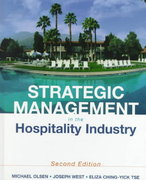Question
Which of the following is not a defining feature of an organisation? Select one: a. It has nominal boundaries. b. It has managers. c. It
Which of the following isnota defining feature of an organisation?
Select one:
a.
It has nominal boundaries.
b.
It has managers.
c.
It is goal directed.
d.
It makes a profit.
Clear my choice
Question 2
Not yet answered
Marked out of 1.00
Flag question
Question text
Which of the following is a reason for studying the behaviour of Organisational Behaviour and Management?
Select one:
a.
So that managers can control the behaviour of their subordinates.
b.
Because organisations are the dominant institution in modern society.
c.
In order to make organisations more profitable.
d.
In order to avoid breaking the law.
Clear my choice
Question 3
Not yet answered
Marked out of 1.00
Flag question
Question text
Which of the following isnota characteristic of scientific management?
Select one:
a.
Identification of the one best way to perform a task.
b.
Separation of the planning and organising of work from the performance of tasks.
c.
The use of schemes of incentive payment.
d.
A concern for the social aspects of work.
Clear my choice
Question 4
Not yet answered
Marked out of 1.00
Flag question
Question text
Which of the following is one of the key principles of scientific management?
Select one:
a.
A happy worker is a productive worker.
b.
Separate the thinking about work organisation from the doing of work.
c.
The aims and interests of workers and management are so diametrically opposed that they cannot be reconciled.
d.
People are motivated as much by the social content ofwork as their monetary needs.
Clear my choice
Question 5
Not yet answered
Marked out of 1.00
Flag question
Question text
Which of the following was a major conclusion of the Hawthorne studies?
Select one:
a.
Money is the most important motivator to hard work.
b.
Satisfying social needs at work is as important as satisfying financial needs.
c.
People usually enjoy their work.
d.
People are usually glad to leave work at the end of the day.
Clear my choice
Question 6
Not yet answered
Marked out of 1.00
Flag question
Question text
Which of the following isnotsomeone who is associated with the ideas of Classical Management Theory?
Select one:
a.
Plato.
b.
Brech.
c.
Mary Parker-Follet.
d.
Henri Fayol.
Clear my choice
Question 7
Not yet answered
Marked out of 1.00
Flag question
Question text
The strongest criticism of Classical Organisation Theory concerns its:
Select one:
a.
assumption that there is a valid set of universally applicable design principles that are suitable for all organisations.
b.
use of contingency perspectives.
c.
strong focus on the human aspects of organisations.
d.
complexity, which makes it too difficult for managers to understand.
Clear my choice
Question 8
Not yet answered
Marked out of 1.00
Flag question
Question text
Which of the following is a characteristic common to both contemporary OB and OA?
Select one:
a.
The use of concepts and theories from the social sciences.
b.
A multidisciplinary focus.
c.
The use of an open systems perspective.
d.
All of the above.
Clear my choice
Question 9
Not yet answered
Marked out of 1.00
Flag question
Question text
Which of the following typifies the multi-disciplinary nature of OB and OA?
Select one:
a.
Problems are always studied by teams from different social science disciplines.
b.
A strong psychological focus.
c.
Large numbers of people are punished if they draw the wrong conclusions.
d.
Different disciplines often produce competing explanations for the same phenomenon.
Clear my choice
Question 10
Not yet answered
Marked out of 1.00
Flag question
Question text
Which of the following is not usually intended as a practical aim of OB and OA?
Select one:
a.
To inform a wider audience about what goes on in organisations.
b.
To better understand organisational phenomena.
c.
To inform other scholars, managers and teachers about what is uncovered.
d.
To better equip managers to be able to control their subordinates.
Clear my choice
Question 11
Not yet answered
Marked out of 1.00
Flag question
Question text
Which of the following most accurately reflects a contingency perspective?
Select one:
a.
Identifying the one best way to do something that applies in all circumstances.
b.
Identifying the circumstances in which human behaviour is unpredictable.
c.
A search for solutions to problems that can be applied in a wide range of circumstances.
d.
None of the above.
Step by Step Solution
There are 3 Steps involved in it
Step: 1

Get Instant Access to Expert-Tailored Solutions
See step-by-step solutions with expert insights and AI powered tools for academic success
Step: 2

Step: 3

Ace Your Homework with AI
Get the answers you need in no time with our AI-driven, step-by-step assistance
Get Started


